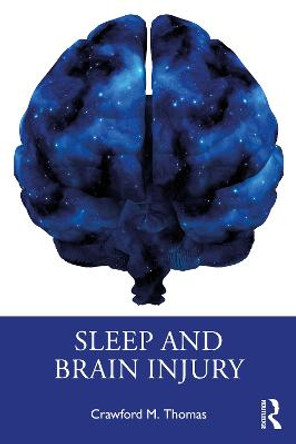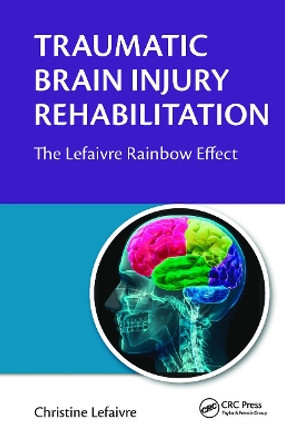Description
Combining scientific expertise with psychotherapeutic acumen, this book is highly accessible and packed with clinical tools. Part I provides essential information on how acquired brain injury affects emotional functioning. Part II describes practical, specially tailored ways to treat anxiety, depression, and anger related to brain damage, and to help patients regain a sense of meaning and value in their lives. The book shows how standard psychotherapeutic interventions can be adapted for the brain-injured population, as well as which approaches may be contraindicated. It presents a biopsychosocial framework for assessment and treatment that integrates emotional support, cognitive-behavioral techniques, and acceptance- and mindfulness-based strategies.
About the Author
Ronald M. Ruff, PhD, ABPP, practices as a psychotherapist, researcher, and forensic neuropsychologist at San Francisco Clinical Neurosciences and is Clinical Professor in the Department of Psychiatry at the University of California, San Francisco. Previously, he served on the faculty of the University of California, San Diego, and was Director of Neurobehavioral Rehabilitation at St. Mary's Medical Center in San Francisco. Dr. Ruff is a Fellow of the American Psychological Association, serves on the editorial boards of multiple scientific journals, was a member of the California Board of Clinical Psychology, and is past president of the National Academy of Neuropsychology (NAN). He is a recipient of the Research Award from the North American Brain Injury Society and of the Distinguished Service Award for Outstanding Contribution to the Profession of Clinical Neuropsychology from NAN. His publications include four neuropsychological tests and more than 120 articles and book chapters.
Serana K. Chester, PhD, practices as a clinical neuropsychologist and rehabilitation psychologist at San Francisco Clinical Neurosciences. She was awarded the Humanitarian of the Year Award while pursuing her master's degree at Nova Southeastern University and the Johnson Fellowship while completing her doctoral studies at Palo Alto University. She also received the Phillip M. Rennick Award for best graduate-student submission at the International Neuropsychological Society Conference. She completed her postdoctoral fellowship in neuropsychology with Ronald M. Ruff. Dr. Chester has published papers on mild traumatic brain injury and the diagnosis of neurodegenerative diseases. She serves on the Test Database Committee of the Hispanic Neuropsychological Society.
Reviews
"The limited utility of traditional psychotherapy for brain injury survivors leads most clinicians to only superficially address important emotional, social, and behavioral injury sequelae. This valuable book equips readers with practical techniques to better help survivors manage anxiety, depression, and anger, while learning to accept their new reality and rebuild their lives in meaningful ways. The senior author, Ruff, is a rare neuropsychologist who is as committed to psychotherapy as he is to assessment. He shares clinical wisdom acquired over three decades in a text that will become an integral part of our rehabilitation neuropsychology training program."--Richard Wanlass, PhD, Chief Psychologist/Clinical Professor, Department of Physical Medicine and Rehabilitation, University of California, Davis, Medical Center
"Ruff and Chester show that helping patients with acquired brain injury effectively cope with their post-injury emotional problems is as important as any service clinical neuropsychologists provide. This resource will be helpful in the training of clinical neuropsychologists and other clinicians. It offers clear information on the neuroanatomy of emotional control, as well as describing in some detail what patients experience when their neuropsychological recovery is incomplete. The authors provide many useful suggestions for conducting psychotherapy with these patients."--George P. Prigatano, PhD, ABPP, Emeritus Chair of Clinical Neuropsychology, Barrow Neurological Institute
"The cascade of emotional, behavioral, and existential issues routinely set in motion by stroke, brain injury, and dementia can and must not be ignored by neuropsychologists and other health care providers. Ruff and Chester's sorely needed book sheds a very bright yet warmly compassionate light on this too often invisible realm of human suffering. The book distills decades of thoughtful and empathic psychotherapeutic work with brain injury survivors."--Jonathan Mueller, MD, Department of Psychiatry, University of California, San Francisco -Should be an authoritative reference on the book shelf of all clinicians providing psychotherapeutic services to persons who sustain acquired brain injuries (ABI) and their families. It distills more than thirty years of clinical and research experience into a narrative that stimulates fruitful reflection on clinical issues. It also practically addresses a variety of difficult clinical problems, and provides practical thoughts on how to effectively address them....Clinicians of all disciplines will find this volume to be a wonderful read that reflects both existential roots and many practical ideas that will assist the clinician in helping patients with ABI to maximize their sense of well-being early on in recovery and as a life-long developmental process.--Brain Injury Professional, 1/22/2015ffRuff and Chester bring to this book a great deal of clinical wisdom, based on both many years of experience and what has obviously been a great deal of thoughtful reflection on the process....The central theme of the book, maintaining hope for what one can change while at the same time facilitating acceptance for what one cannot, is a critical issue upon which all psychotherapists should regularly reflect. In addition, the book is peppered with both thought-provoking reflections on such topics as the importance of emotions in our lives and gems of clinical wisdom on how best to deal with specific issues that arise, such as the tasks the therapist should address when working as part of an interdisciplinary team versus on his or her own.--PsycCRITIQUES, 6/15/2015
Book Information
ISBN 9781462516780
Author Ronald M. Ruff
Format Hardback
Page Count 248
Imprint Guilford Press
Publisher Guilford Publications
Weight(grams) 520g






